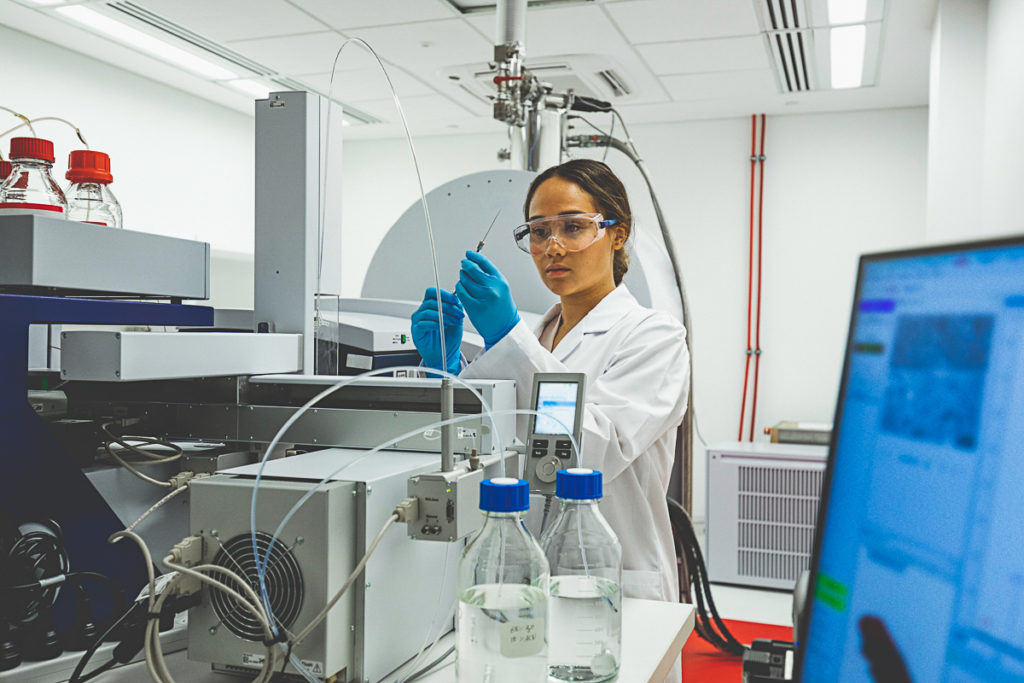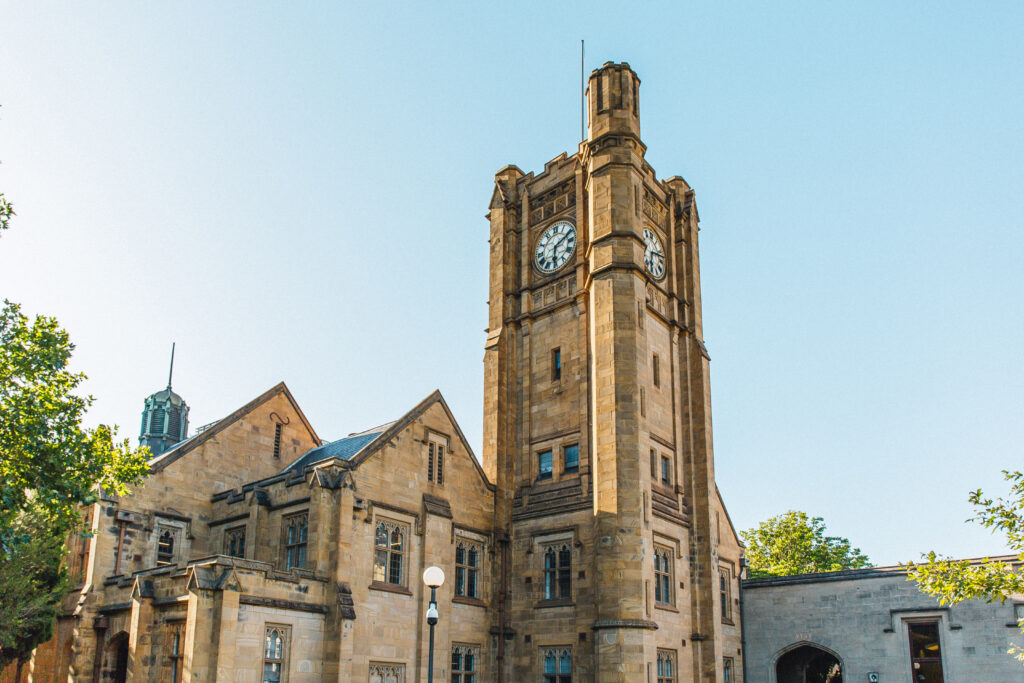Fast-paced, innovative and rewarding, medicine is one of the most exciting fields to become involved in. That said, there are some conditions you’ll need to meet – including English language requirements and prerequisite subjects to complete – before you can study medicine in Australia and start on your career pathway.
By becoming a medical professional, you empower yourself to help others and even save lives. It’s a kind of job satisfaction only those in the medical field can truly understand – and maybe you want to experience it for yourself.
We’ve compiled some of the most important information about how to study medicine in Australia for international students.
Can international students study medicine in Australia?
Yes, international students can absolutely study medicine in Australia.
The first step is ensuring that you have the prerequisite subjects and academic scores required to enrol in medicine. In most cases, to be accepted into a medical program, you must have successfully completed the relevant biology, chemistry and mathematics courses. The exact academic score required to enrol in medicine will vary depending on the institution you’re applying to and your previous qualifications. Check each education provider’s website to verify the exact prerequisite and academic score requirements for each program.
To study medicine in Australia, you must also prove that you are proficient in English (speaking, writing, reading and listening). If you are not a native English speaker, you will be required to take an English language test with a provider like OET, which specialises in English language testing for healthcare professionals. OET tests are written to reflect real workplace tasks and include relevant language skills. You can even check out their free sample tests to get an idea of what your test might look like.
Keep in mind, that’s not the only test you’ll need to complete to enrol in medical school in Australia. You must also take an admissions test to prove that you have the appropriate abilities to succeed in medicine, such as the International Student Admissions Test (ISAT).
Additional steps include filling out an online application form and completing the necessary interviews with academic personnel. After that, you wait for the offers to roll in and accept the one that best suits your goals.
For more information on the requirements to study medicine in Australia, click here.
Why you should study medicine in Australia
Australia is home to some of the most renowned medical programs in the world. Five Australian universities ranked among the top 50 medical schools in the global QS World University Rankings by Subject 2020. The institutions that made the list were: the University of Melbourne (which placed 16th), the University of Sydney (18th), Monash University (31st), the University of New South Wales (46th) and the University of Queensland (48th).
When you study medicine in Australia, you’re studying in a hub of medical innovation. In fact, Australia is home to some of the world’s most pivotal and valued medical discoveries, including in vitro fertilisation (IVF) and the Gardasil vaccine for cervical cancer.
Studying medicine in Australia also sets you up for an extremely prosperous future. Not only will you benefit from healthy average salaries, but you could be eligible for extra incentives. If you plan to practise medicine in Australia after completing your studies, the Australian Government offers financial incentives to doctors who practise in regional, rural and remote areas. The Workforce Incentive Program (WIP) – Doctor Stream features several financial incentive rates depending on the location and number of years of active service.
Where can you study medicine in Australia?
There are a few different pathways you can follow to become a medical professional. If you’re hoping to practise medicine in any capacity, you need to attend medical school at a university. You can do so by pursuing a bachelor’s degree in a relevant field, such as medical science, followed by a Doctor of Medicine. A Doctor of Medicine entails problem-based learning, practical assessments and clinical placements.
Alternatively, there are many universities that offer double degrees in medicine, combining an undergraduate degree with the Doctor of Medicine. These double degrees offer direct entry from the undergraduate level to the postgraduate level, which streamlines your education.
On the other hand, if you’re hoping to pursue a career in medical administration, there are TAFE and vocational education and training (VET) programs you can enrol in that will bring you one step closer to this goal. These programs allow you to gain qualifications in study areas like business administration (medical), health administration and medical reception.
If you’re keen to start researching programs, we’ve put together a full list of universities and TAFEs in Australia. You’ll find links to each institution’s website, where you can explore their course offerings and see if medicine is among them.
You can also check out the list of fully accredited medical schools in Australia. If an institution is accredited, it means that it has met the standards set by the Australian Medical Council (AMC) for medical education and training. An accreditation is a good sign that you will be receiving a high-quality, up-to-date education from that university.
How long does it take to study medicine in Australia?
The answer to this question will vary depending on what kind of degree you decide to pursue. If you opt for a medical administration diploma with a TAFE institute, you’re looking at roughly nine months to one year of full-time study. On the other hand, if you wish to practise medicine, you will need to gain a bachelor’s degree and a Doctor of Medicine.
As you’ve previously seen, you can do this in one of two ways. First, you can get your bachelor’s degree in a relevant field, which will typically take three or four years of full-time study to complete. Then, you will need to complete a Doctor of Medicine, which usually takes four years to finish. The second option is to enrol in a double degree in medicine. Because these programs combine your undergraduate and postgraduate learning, many of them are fast-tracked and usually only take five to six years to complete.
If you wish to specialise in a specific medical field, such as oncology or surgery, you must participate in specialist training after finishing medical school. The Medical Board of Australia recognises a wide variety of medical specialties, all of which take varying amounts of time to complete. If you’re hoping to do general practice, for instance, you’ll likely only need to do an additional three to four years of training. If you want to become a surgeon or an oncologist, however, you’re looking at an extra five to seven years of specialist training.
You can find a comprehensive list of medical specialist fellowships and organisations in Australia here.
Can you study medicine online?
In limited circumstances, you can study medicine online. While many medical programs require students to attend courses, labs and technical training in person, certain programs enable students to learn remotely. If you plan to study the administrative side of medicine, there are courses you can complete online through TAFE and VET institutions. Some universities also offer medical postgraduate degrees that are administered entirely online.
This means that international students who have the necessary qualifications can enrol, study online and complete these programs from anywhere in the world. Be sure to check your education provider’s website to see if they offer any medical programs online.
How much does it cost to study medicine in Australia?
Course fees will vary depending on the institution, program and level of study. That said, medical degrees are among the most expensive. For instance, at the Australian National University (ANU), the annual indicative fee for international students studying a Bachelor of Medical Science is AU$48,860. On the other hand, those studying a Doctor of Medicine and Surgery at ANU will be required to pay an annual indicative fee of AU$80,136. Consult the websites of each institution you’re considering to find out more about their course fees.
If you need a bit of financial assistance, there are several scholarships available to international students in Australia. Check out any of our helpful resources on Australian scholarships to help with your applications:
- Top scholarships for international students
- How scholarships work in Australia
- How to earn a scholarship
You may also be eligible to apply for an education loan in Australia or through your home country. Find out more here.
What jobs are available for medical graduates?
The Australian medical sector is booming, meaning medical roles of various kinds are consistently in demand.
When it comes to the administrative side of medicine, some of the most sought-after positions include clinical administrators, hospital administration staff and medical records administrators.
Allied health specialisations include audiologists, optometrists and podiatrists. Doctors and physicians’ assistants are also highly needed in Australia and in many other corners of the world, which is great if you’re hoping to practise overseas and launch yourself into a global healthcare career.
What is the expected wage for a medical graduate?
The starting salaries for medical graduates typically fall between AU$70,000 and $85,000 a year. The average top-level salary for doctors in Australia is roughly AU$394,866, so there is a lot of room for growth.
Your exact salary will depend on your specialisation, your level of experience and the state you decide to live and work in. For instance, neurosurgeons and cardiologists typically earn higher wages than general practitioners or anaesthesiologists. Additionally, Western Australia typically pays the highest annual base salaries for medical graduates (AU$85,000), whereas junior doctors in Tasmania earn closer to AU$72,000.
No matter your specialisation or location, a career in medicine is guaranteed to be both gratifying and prosperous.





